In a world of orphans, Mary is the mother who fully understands us and defends us, because she too has personally experienced the same humiliations which, for example, are suffered by the mothers of prisoners today.
Celebrating Mass in the Chapel of Santa Marta on Thursday morning, 15 September, the Feast of Our Lady of Sorrows, Pope Francis recommended that in difficult moments we always seek refuge “under the mantle” of the Mother of God, thus repeating the “spiritual council of Russian mystics”, relaunched in the West in the antiphon verse: Sub tuum preasidium.
Speaking on the “mystery of Mary’s motherhood”, the Pope drew inspiration from the scene of the Last Supper: “Jesus, at
table, bids farewell to his disciples: there is an air of sadness, everyone knew that there was something that would end badly and they asked questions, they were sad”. In Jesus’ farewell, however, “in order to give them a bit of courage and also to prepare them in hope, Jesus said to them: “Do not be sad, let your hearts not be sad, I will not leave you alone! I will ask the Father to send the Paraclete, who will accompany you. And he will teach you everything and remind you of all that I have said’”. The Lord, therefore, “promises to send the Holy Spirit in order to accompany the disciples, the Church on the path of history”.
Jesus, however, “also speaks of the Father”. Indeed, Pope Francis recalled, “in that long, long conversation with the disciples, he speaks of the Father”, assuring them “that the Father loves them and that anything that they ask of the Father, the Father will give to them”, and that they “ought to trust in the Father”. In this way, the Pope explained, he takes “another step: he not only says ‘I will not leave you alone”, but also “I will not leave you as orphans, I give you the Father, the Father is with you, my Father is your Father”. Francis continued, saying, “we know everything that happened, following that dinner: the humiliation, the prison, the disciples’ betrayal; Peter denies Jesus, and the others flee”.
Referring to the passage in the liturgy of the day, taken from the Gospel of John (19: 25-27), the Pope said that “only one disciple, the mother of Jesus, with Mary Magdalene and the other Mary, a relative”, were there under the cross. There, at the cross, “is Mary, the Mother of Jesus, and everyone is looking at her”, perhaps whispering: “She is the mother of this criminal! She is the mother of this traitor”. And Mary, the Pope added, “heard these things, she suffered terrible humiliations and even heard some of the great priests, whom she respected because they were priests”, say to Jesus: “But you who are so great, come down, come down!”. Francis said that as Mary stood beside “her Son who was naked” there on the cross, she experienced “such an intense suffering, but did not leave, she never denied her Son, He was her flesh”. Sharing a personal memory, the Pope recalled: “When I was in the diocese of Buenos Aires, it would often happen that when I went to prisons to visit the prisoners, I would see a queue, a line of women waiting to enter: they were the mothers, but they were not ashamed, their own flesh was there inside” in the prison. Those “women not only suffered the shame of being there, hearing people say: “Look at her, what did her son do?”. Those mothers also suffered the worst humiliation, that of going through the inspection that is required before entering, but they were mothers, and they were going there to see their own flesh”. And so it was for Mary, who “was there, with her Son, with that great suffering”.
Precisely “at that time”, the Pope noted, “Jesus — who had said he would never leave us as orphans, who spoke of the Father — looks at his Mother and gave her to us as a Mother: ‘Behold, your Mother!’”. The Lord “does not leave us as orphans: we Christians have a Mother”, the same Mother that Jesus had; “we have a Father, the same as Jesus. We are not orphans”.
And Mary bears “so much pain in that moment, it is truly a martyrdom: with her pierced heart, she agrees in that moment to give birth to all of us. And from that moment on she became our Mother, since that moment she is our Mother, the one who takes care of us and is not ashamed of us: she defends us”.
“The Russian mystics of the early centuries of the Church”, Pope Francis noted, in this regard, “counseled their disciples, the young monks: to retreat to the mantle of the Holy Mother of God during times of spiritual turmoil. The devil cannot enter there because she is a Mother, and as a Mother she defends”. Thus “the West took this counsel and created the first Marian antiphon, with the verse: Sub tuum praesidium: under your mantle, placed under your care, O Mother, we are safe there”.
“Today is the Feast of the moment that Mary” became our Mother, the Pope continued, “and she has been faithful to this to this very day, and will continue to be faithful”. In a world “which we might call an ‘orphan’, this world that suffers the crisis of a great orphanhood, perhaps we can offer help by saying: ‘Look to your mother!’”. Because we have a mother “who defends us, teaches us, accompanies us, and is not ashamed of our sins”, she “is not ashamed, because she is Mother”.
In conclusion, the Holy Father prayed that “the Holy Spirit — this friend, this companion on the journey, this Paraclete and advocate that the Lord sent to us — will help us to understand this mystery of Mary’s motherhood that is so great”.

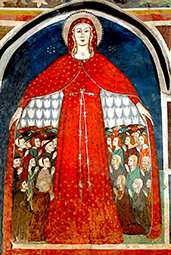 table, bids farewell to his disciples: there is an air of sadness, everyone knew that there was something that would end badly and they asked questions, they were sad”. In Jesus’ farewell, however, “in order to give them a bit of courage and also to prepare them in hope, Jesus said to them: “Do not be sad, let your hearts not be sad, I will not leave you alone! I will ask the Father to send the Paraclete, who will accompany you. And he will teach you everything and remind you of all that I have said’”. The Lord, therefore, “promises to send the Holy Spirit in order to accompany the disciples, the Church on the path of history”.
table, bids farewell to his disciples: there is an air of sadness, everyone knew that there was something that would end badly and they asked questions, they were sad”. In Jesus’ farewell, however, “in order to give them a bit of courage and also to prepare them in hope, Jesus said to them: “Do not be sad, let your hearts not be sad, I will not leave you alone! I will ask the Father to send the Paraclete, who will accompany you. And he will teach you everything and remind you of all that I have said’”. The Lord, therefore, “promises to send the Holy Spirit in order to accompany the disciples, the Church on the path of history”.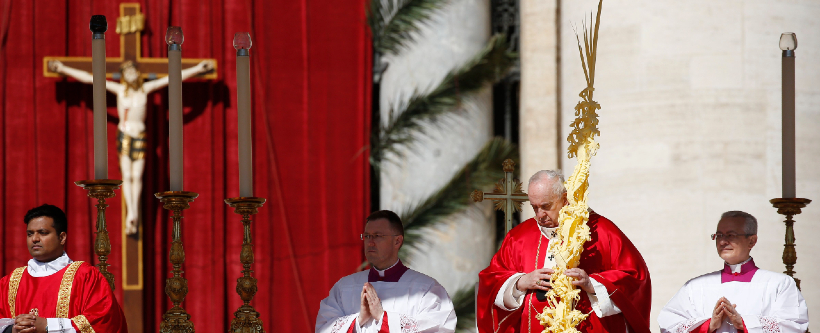
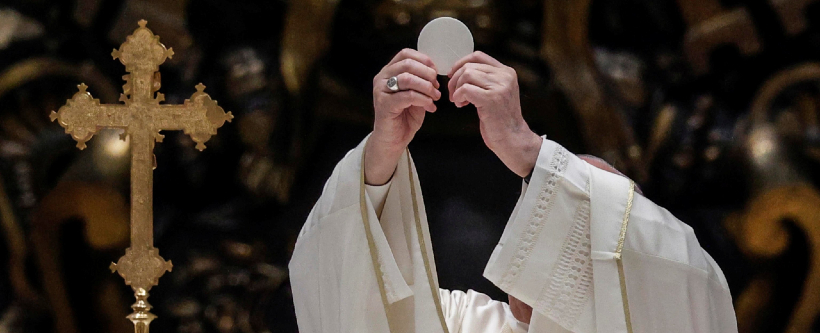
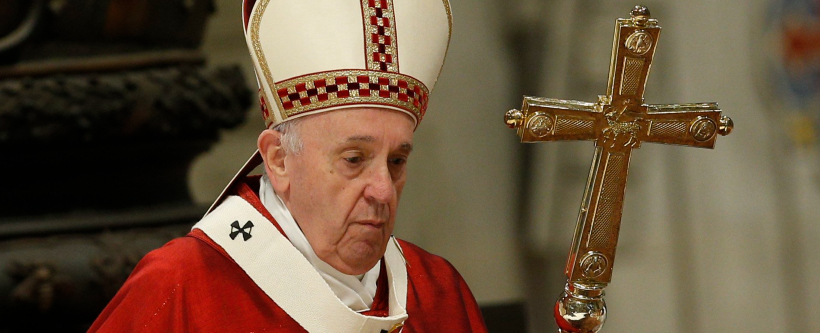
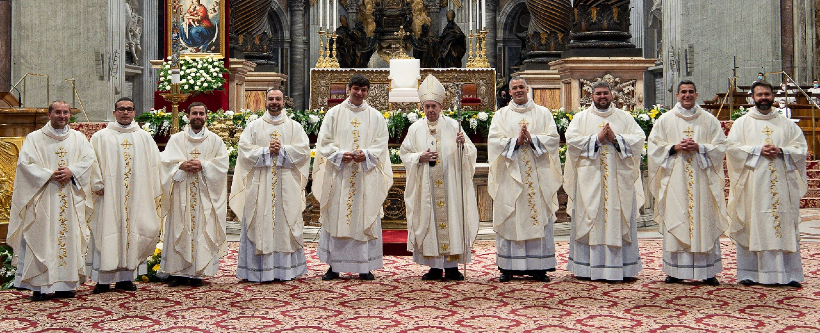
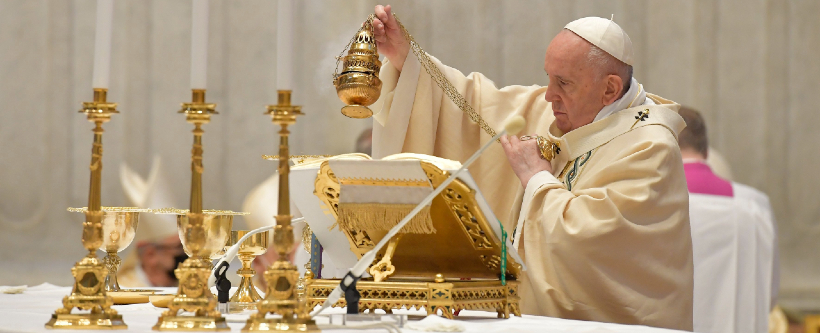
Facebook Comments